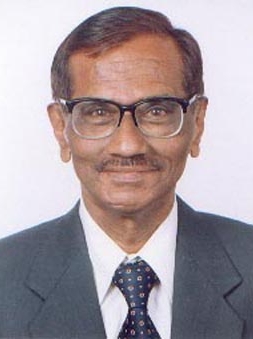
The UN General Assembly has unanimously adopted a resolution on June 15, 2007 to declare October 2, the birthday of Mahatma Gandhi, as the International Day of Non-Violence in recognition of his role in promoting the message of ‘peace through non-violence’ around the world. Mahatma Gandhi, the Father of the Indian Nation, was a great political and spiritual leader, the pioneer of satyagraha, and the practitioner of non-violence. His life-style and approach of non-violence earned him the nickname ‘half-naked fakir’.
The UN resolution was in fact an effect of a suggestion made in an International Conference on “Peace, Non-Violence, and Empowerment: Gandhian Philosophy in the 21st Century”, held at New Delhi in January 2007. The UN resolution to honour ‘the apostle of humanity and peace’ was unanimously sponsored by all the major countries of the world and the subcontinent of India, including Great Britain against whom Gandhi successfully led an agitation through non-violent satyagraha for India’s independence.
The UN General Assembly 's Resolution is not only a glorious tribute to the principles of Ahimsa and Satyagraha championed by the Father of the Nation, Mahatma Gandhi but also an implicit recognition of the core message of Jainism: Ahimsa Paramo Dharmah.
Dr. Schweitzer speaks in glowing terms of the principle of Ahimsa non-violence as laid down by Jainism: “The laying down of the commandment not to kill and not to damage is one of the greatest events in the spiritual history of mankind. Starting from its principle, founded on world and life denial of abstention from action, ancient Indian thoughts and this is a period when in other respects ethics have not progressed very far reaches the tremendous discovery that ethics know no bounds. So far as we know this is for the first time clearly expressed by Jainism.”
I have attached my article Dr.Albert Schweitzer: The Saint of Lambarene published in "The Bharat Jyoti dt. 123-09-1965 The enunciation of the principle of ahimsa is truly a pioneering contribution of Jainism to humanity. The concept of ahimsa is the Jain religious and ethical teaching. It was foreign to Vedic culture. This is shown by the eminent indologist Prof. W. Norman Brown in his Tagore Memorial Lectures, 1964-65 published in the book Man in the Universe. His observations deserve to be quoted in full;
“Though the Upanishadas contain the first literary references to the idea of rebirth and to the notion that one’s action (karma) determines the conditions of one’s future existences, and though they arrive at the point of recognizing that rebirth may occur not only in animal form but also in animal bodies, they tell us nothing about the precept of ahimsa. Yet that precept is later associated with the belief that a soul in its wandering may inhabit both kinds of forms. Ancient Brahmanical literature is conspicuously silent about ahimsa. The early Vedic texts do not even record the noun ahimsa-“non injury”, nor know the ethical meaning which the noun later designates. The first occurrence of the word in Sanskrit literature is in the Upanishads, but there it occurs only once (CU 3.17.4) and in a context that has nothing to do with transmigration. It is merely mentioned in a list of five virtues without any indication of its character. These virtues are austerity (tapas), almsgiving (dana), rectitude (arjava), ahimsa (non-injury) and truthfulness (satya vachana) It is evident that these are prized Virtues… but ahimsa stands here isolated and unexplained. Nor is an explanation of ahimsa deducible from other parts of Vedic literature. The ethical concept it embodies was entirely foreign to the thinking of the early Vedic Aryans, who recognized no kinship between human and animal creation, but rather ate meat and offered animals in the sacrifice to gods.” (Pp.53-54)
Therefore Prof. Brown concludes:
“The double doctrine of ahimsa and vegetarianism has never had full and unchallenged acceptance and practice among Hindus, and should not be considered to have arisen in Brahmanical order.It seems more probable that it originated in a non-Brahmanical environment, was promoted in historic India by the Jains and the Buddhists, and was adopted by Brahmanic Hinduism after it began to win its way in North India where Brahmanic Hinduism was developed. (P.56)
Also attached is my article The Great Ahmedabad Trial of Mahatma Gandhi:1922 AD.
I would like to put on record that way back in 1975 when the 2500th Nirvana Anniversary 0f Bhagwan Mahavira was celebrated by the National Committee with the them Prime Minister,Smt.Indira Gandhi as the President and Shri Kasturbhai Lalbhai and Shri Shriyans Prasad Jain and Shri Shanti Prasad Jain along with a galaxy of Jain leaders and scholars of India were guiding the celebrations and memorials I had proposed that the Mahavira 2500th Nirvana Year be declared as the Ahimsa Year by the UNO and Mahavira Jayanti be declared as the Universal Ahimsa Day. I had the privilege then of working as the editorial assistant to the Editorial Board for publications under the Chief Editorship of Dr.A.N. Upadhye of the Bhagwan Mahavira Memorial Committee. I have attached an image of Shri Shanti Prasadji's letter welcoming my suggestion. The suggestion did not materialise then, but now it is a reality as a tribute to Mahatma Gandhi.